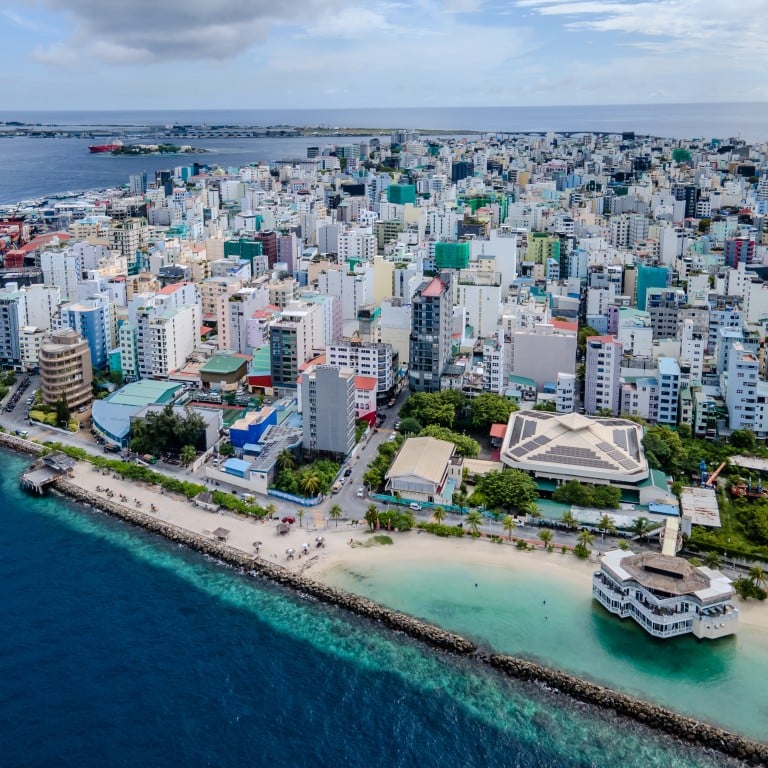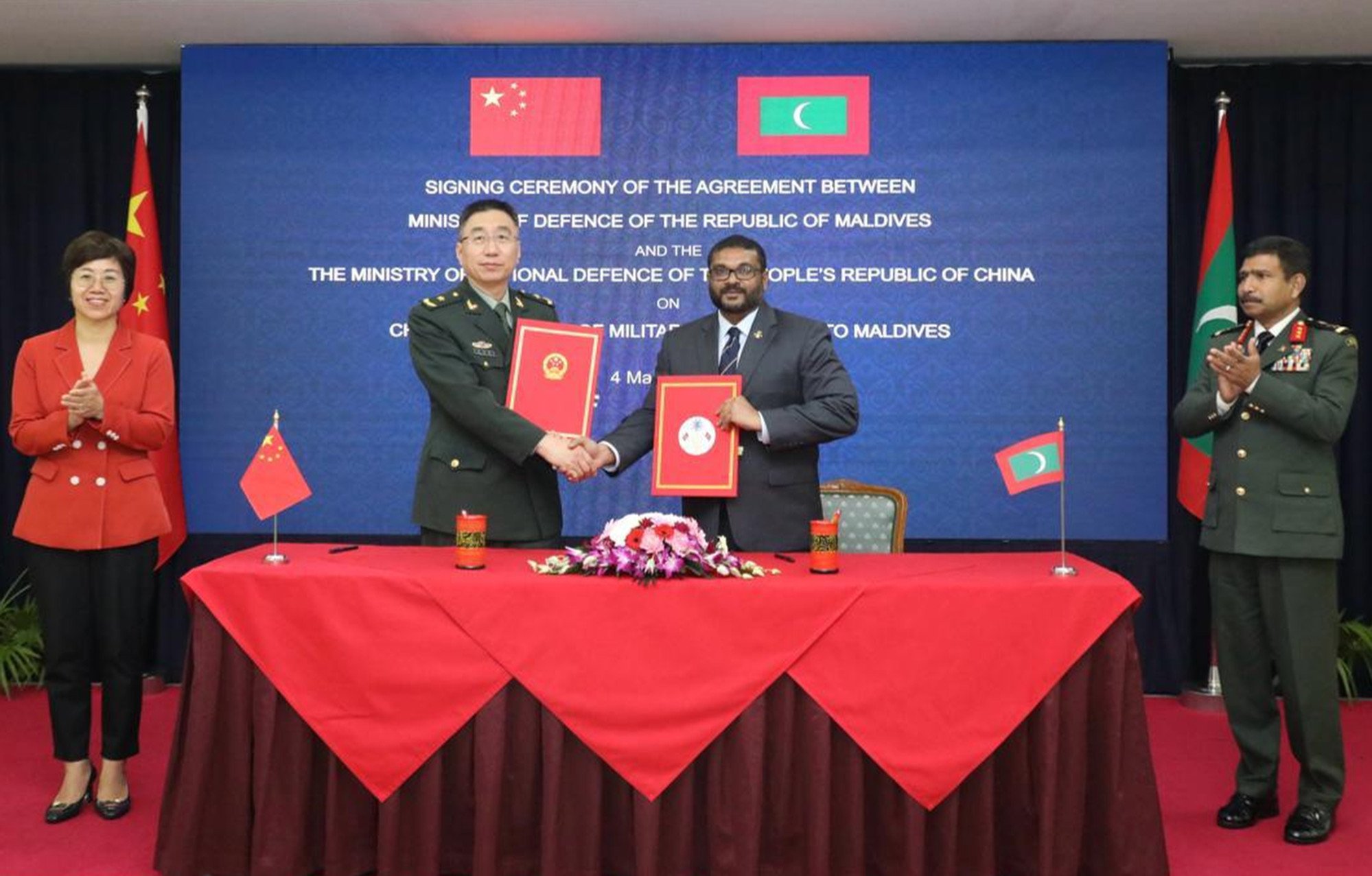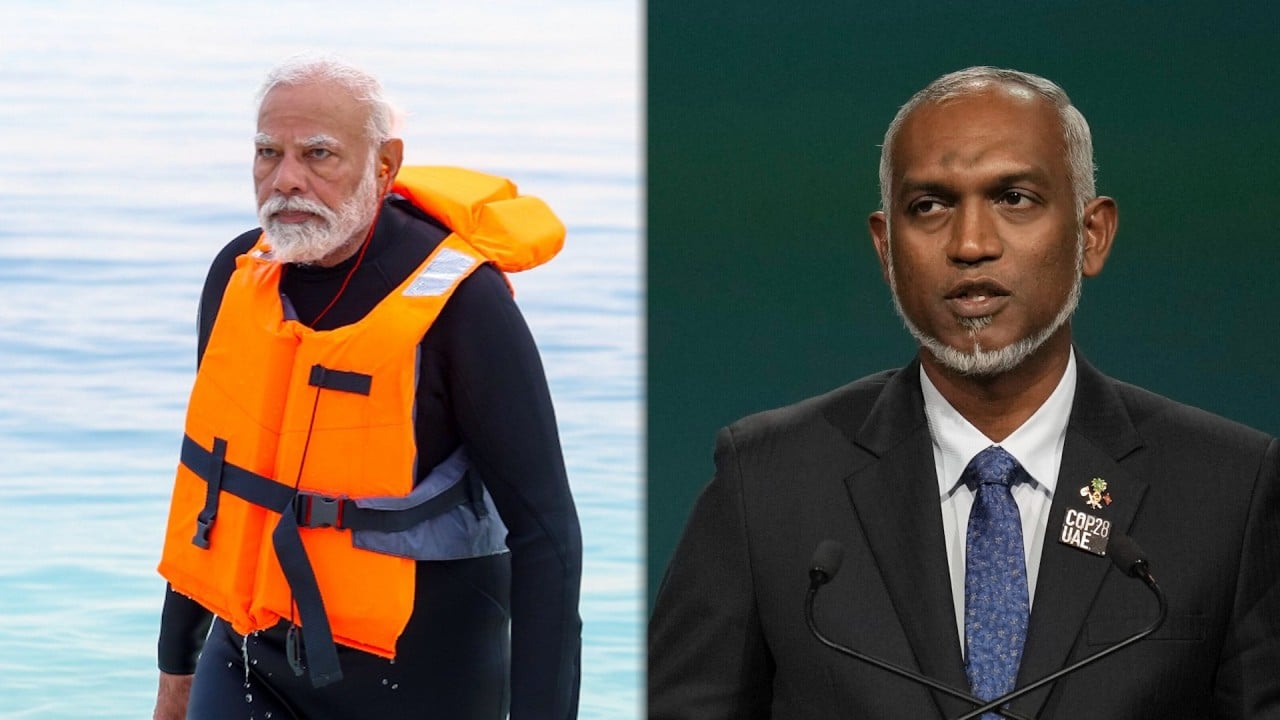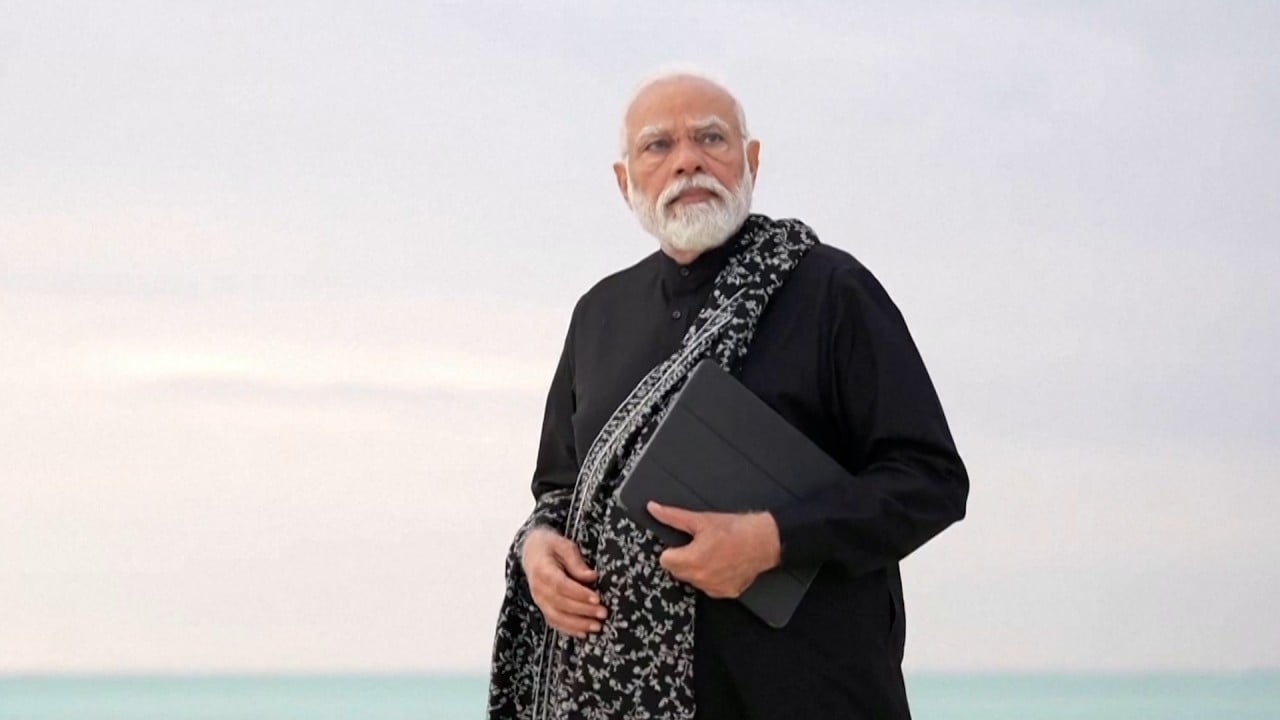
Maldives signed military deal with Beijing but may remain swing state in China-India tug of war
- As Indian military begins withdrawing from Maldives, China’s defence ministry confirms a PLA delegation last week visited Male and met President Muizzu
- Analysts look to broader China-India relations and US Indo-Pacific policy to assess implications of the Maldives’ ties with Beijing
Without mentioning the agreement, the Chinese statement said the Maldives trip was part of a three-nation tour that also included Sri Lanka and Nepal – also India’s neighbours – that focused on promoting defence cooperation with Beijing.
China’s foreign ministry described the agreement last week as part of “normal cooperation” between the two countries that did not “target any third party and does not undergo any interference by third parties”, but observers said it signalled the Maldives’ further tilt towards Beijing amid its deteriorating relations with New Delhi.
Pointing to “a significant deterioration” in the Maldives’ relationship with India, David Brewster, a senior research fellow at the Australian National University’s National Security College in Canberra, said the Maldives had increasingly become a battlefield for geopolitical jostling between China and India.
Can India mend fences with the Maldives amid China’s gambit to gain clout?
“The decision of the Maldives government to accept defence assistance from China is very significant and many observers see this as signalling a major tilt towards Beijing,” he said.
“It may be possible to allay these concerns [from India and others] by providing full transparency about these arrangements.”

Liu Zongyi, a senior fellow with the Shanghai Institutes for International Studies’ South Asia and China Centre, said the Maldives was not the first nation to receive free military assistance from China.
He said that in recent years Beijing had signed several similar deals to provide military aid to developing countries in Asia and Africa, which were aimed at addressing their specific defence needs and were usually free considering the nations’ financial difficulties.
“The Maldives is a small country and the agreed military assistance from China is not likely to exceed what Male needs. China will not force other countries to do things they do not want to do and it has no intention to turn the Maldives into an overseas military base like what India has been doing,” he said.
Liu said the deal raised many eyebrows because it coincided with the withdrawal of Indian troops while ties between the South Asian neighbours were at a low point.
India to open ‘strategically important’ navy base near China-friendly Maldives
Since assuming power in November, Muizzu, who campaigned on promises to reduce India’s influence on the country, broke tradition by visiting China before India.
Shortly after his meeting with Chinese President Xi Jinping in Beijing in January after the signing of multiple infrastructure, energy, marine and agricultural deals, he formally asked India to withdraw military personnel from the island. But Muizzu previously denied he would bring in Chinese forces to replace Indian troops.
Liu said Beijing should not be blamed for New Delhi’s insecurities about China’s presence in its perceived sphere of influence.
“China steps in and offers to provide help in times of need when India can no longer fulfil its defence commitments [after the withdrawal of military personnel]. It is not aimed at India, but to meet the needs of the Maldives in safeguarding its defence and national security interests,” Liu said.
Instead, the strengthening of relations between China and the Maldives was largely because of the need on Beijing’s part to counter India’s attempts to limit China’s influence in South Asia and the Indian Ocean region, he said.
“The main issues here are India’s regional hegemony mentality, its concept of sphere of influence and its view of a zero-sum game between China and India,” Liu said.
He described India’s calls for its tourists to boycott the Maldives as using economic coercion to bully its small neighbour and said the building of a new naval base near the island nation would make things worse.
“The base may pose a substantial security threat to the Maldives. It is also obviously aimed at China as it would strengthen India’s control of the main shipping lanes of the Indian Ocean, affecting China and other countries that rely on this important corridor for energy and trade with Europe and Africa,” he said.
Nilanthi Samaranayake, a visiting expert at the United States Institute of Peace and adjunct fellow at the East-West Centre in Washington, said Muizzu’s new diplomatic approach showed “how the Maldives as a smaller state was seeking a wider base of security cooperation partnerships to include, but not be limited to, India and China”.
After ordering India’s troops to leave, Maldives signs defence deal with China
She noted the island nation’s recent attempts to buy drones from a Turkish company for maritime surveillance and a US commitment to provide four patrol boats for the Maldives as examples.
“Small island states like Maldives are increasingly confronted with the need to maintain their sovereignty and autonomy amid rivalry between large powers,” she said.
“They foremost are trying to achieve national development goals, often in the context of requirements to address non-traditional security challenges, such as climate change impacts. Heightened strategic competition makes achieving these objectives that much harder.”
But despite the headway China had made in pulling the Maldives closer to its orbit, Liu said Male was still under India’s influence and would inevitably remain a swing state in the great power rivalry between China and India.
“Its shifting stance carries risks and challenges for Beijing, especially considering India’s dominating influence over the Maldives’ internal politics. The same is true for other small regional countries such as Sri Lanka and Nepal,” Liu said.



